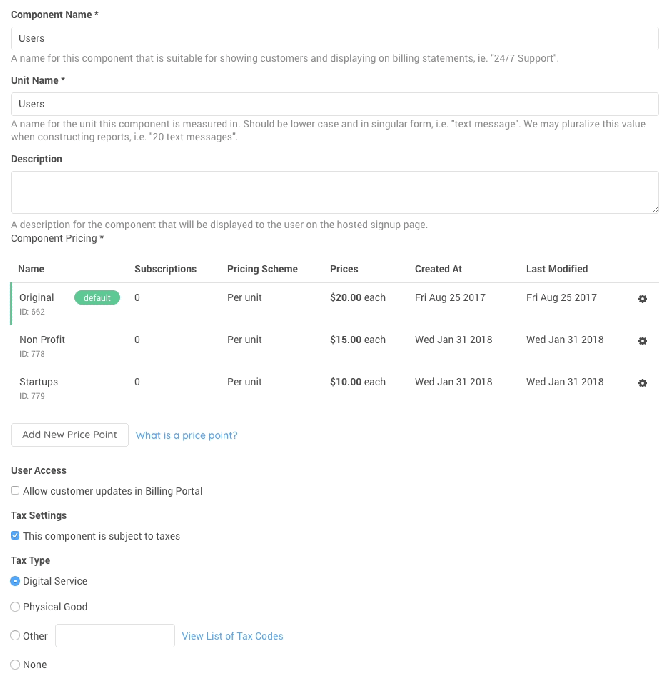By now, just about everyone recognizes the power of the subscription model. Instead of simply selling a widget and recording revenue one time, you can sell a subscription and keep collecting that revenue over time. Up until now, subscription pricing has been fairly static for most companies. You tend to provide a set of tiers that remain fixed over time, but what if you could set different pricing for different users based on factors like the type of business?
That’s precisely what Chargify, a subscription billing software service, is providing with Elastic Billing in their latest release announced today. Say you have one price for most users, but you wanted to give a break to non-profits and startups who might not be able to afford your full price.
You can set different price points for each customer type from one central interface and easily add or remove categories as your requirements change.
Chargify CEO Chris Cochran points out that this level of customization was previously only in reach of the largest companies who could afford to create custom software. “Subscriptions have given way to complex relationship pricing, often resulting in a unique price per customer that changes every month. Big companies have built custom software to meet this need. We built Elastic Billing so anyone could do it,” Cochran explained in a statement.
Of course, with this kind of flexible pricing comes increased complexity around billing. At the same time, the subscription model forces companies to be more focused on their customers because they can leave any time they aren’t happy for any reason, whether that’s due to bad service or overly complex billing. If the bill is confusing or the customer feels it’s inaccurate that could be the impetus to look for a new provider.
The company says it can generate a bill based on whatever pricing scheme you used even if it changes in a given month, while including all appropriate taxes. It also provides tracking in the form of analytics to let you see the impact of a given price change on revenue and customer churn, so you aren’t shooting in the dark.
The San Antonio, Texas company was founded in 2009 and officially launched in the DemoPit at the event then known as the TechCrunch 50. It was purchased by private equity company, Scaleworks in 2016.

